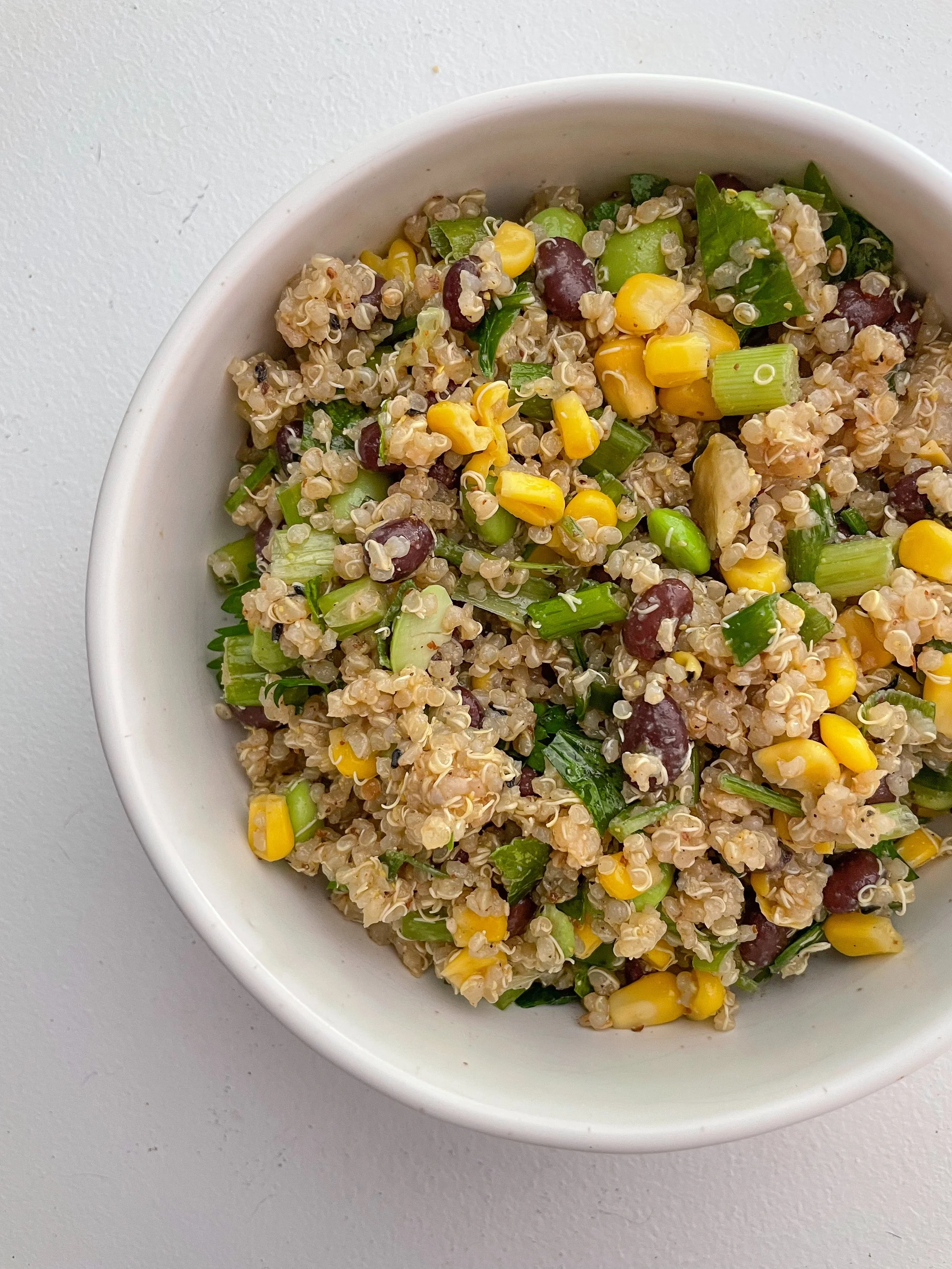Planting Seeds For a Kick Ass Workout, Written for Y Yoga

photo by danika sea design
Originally featured on Y Yoga's site.
What's cookin' good lookin'?
Okay, so you've convinced yourself to get on the mat but how do you ensure you're eating right before and after class? Registered Holistic Nutritionist, Jordan Bruce guides you through the dos and don'ts before and after your workout.
My first question to someone that says they are sleepy in the afternoon is what did you eat for breakfast? How we start our day impacts our energy levels and mood. Food is fuel and if we are missing macronutrients our body isn't going to thrive. Just like our breakfasts, which literally means breaking the fast, our fuel before a workout matters. Ever notice how some days, your exercise class just seems that much harder? Well, it could be your food choices. Carbohydrates are stored as glycogen in the muscles and liver and if you’re not consuming enough you may feel fatigued. Carbohydrates often get a bad reputation so it’s important to distinguish between simple and complex carbs. Simple carbohydrates cause a spike in our blood sugar levels, we then release insulin which lowers them, often too much and we then feel tired. Examples of simple carbs we want to avoid include refined foods such as sugar and white pasta. Whereas, complex carbs slowly release glucose, our blood sugar levels, mood and energy stay more stable.
What to do before if you have lots of time?
If you have a 2-4 hours before your workout, I suggest eating complex carbohydrates which have a low glycemic load and therefore maximize glycogen storage. This ensures your blood sugars stay balanced and you have sustained energy levels to perform your best. As a general guideline, 2.5 grams of carbs per kg of body weight is ideal. My favourite is oatmeal with some added nut butter and ripe banana. If i’m in a rush, I have a smoothie that has carbs, protein and fat to avoid a big blood sugar spike. I love adding steamed cauliflower, fruit, blueberries, 1 tbsp of almond butter, flax, chia, spirulina or hemp seeds. If you tend to be into savoury meals, garnet yams are a great to include. Avoid consuming too much fat and protein before your workout because carbs are the main fuel source.

photo by danika sea design
What to do before if you are crunched for time?
If you’re hungry and you only have 30 minutes to an hour before your workout, this is when you’d reach for simple carbs for that quick boost, such as dates or a banana. Fasted workouts, or more simply, not eating before a workout are an option, but I encourage you to listen to your body. If you know you have low blood sugar levels or you’ve signed up for an intense workout, I don’t recommend a fasted workout. After an overnight fast, muscle glycogen and blood glucose levels are low and this could lead to burning protein for fuel. I personally love sleeping until 8:30 on Saturdays, drinking a matcha coconut butter latte and then heading to a 9:30 am yoga class. This works for me as I don’t want to eat a large meal and be digesting it while working out.
If your workout is under an hour the only fuel you need during is water. If your workout is in the 1-2 hour range you’ll need to replenish with with 30-60 grams of carbohydrates, preferably high glycemic load foods so they’re easily absorbed.
What to do after?
After your sweat session, it’s important to replenish with a 4:1 carbohydrate to protein ratio within 2 hours. If you’re not working out again, choose low glycemic load foods, but if you are going off on an adventure choose a higher glycemic load for fuel (ie dates).
What's the best time to move my body?
As a holistic nutritionist, I recommend clients exercise in the morning as this is when cortisol levels are the highest. Cortisol is a steroid hormone that helps us feel alert in the morning and as the day progresses the level decreases ensuring we are tired in the evening. When doing an intense workout in the evening we are increasing our cortisol levels, which may lead to a second wind and decreased sleep. Working out in the morning may also encourage fat burning as insulin levels are the lowest. Use this information as a guide and incorporate what works for you!
Happy sweating,
xx
Jordan Bruce
@jordanbrucerhn

Your guide to everything you need to know about protein. How much protein you need, meals ideas, plant-protein foods and perimenopause.
As a gut health nutritionist, I give you practical tips, plant-based foods high in iron and a recipe. I also explore reasons why your ferritin may be low.
There are so many different types of magnesium, it’s overwhelming. Thanks to my work experience student, we have complied a chart and a description of each type so you can make an informed decision. Curious to learn your magnesium levels, book in for a hair mineral analysis test.
A week of gut health tips to get your microbiome thriving! Easy to incorporate with a focus on diversity and plants by Jordan Bruce, a holistic nutritionist.
There is so much misinformation about soy consumption. Read why this nutritionist, Jordan Bruce, recommend you eat soy food.
Great for period pain, inflammation, liver detoxification, gut health protocols and hormone balance
Everything you need to know about flax! Why you should include it in your diet and how to prepare
Want to include more plant protein for health reasons? Not sure where to start? Here’s 9 of my favourite plant protein sources and my thoughts on each one!
Paleo? Keto? Let’s stop these short term diets and move towards something more sustainable. My top 6 gut health tips to ease into 2024
Everything you need to know about the bacteria H. pylori and how to support it naturally
Let’s dive into how you can improve constipation, I’ve got a tip for you! Cover image thanks to the book, Gut.
Your nervous system impacts your IBS, digestion, hormones and mood! Read up about the vagus nerve with actionable tips you can take today.
1/10 are diagnosed with endometriosis and it often takes a decade to get a diagnosis. Learn the symptoms here in this blog post!
Read this list to ensure you’re supporting your hormones! Food is powerful and can impact our sex hormones.




























